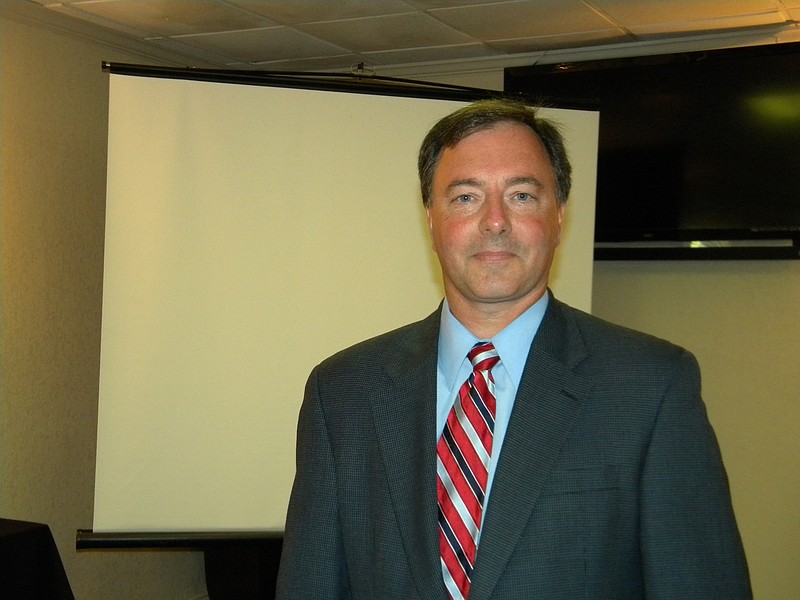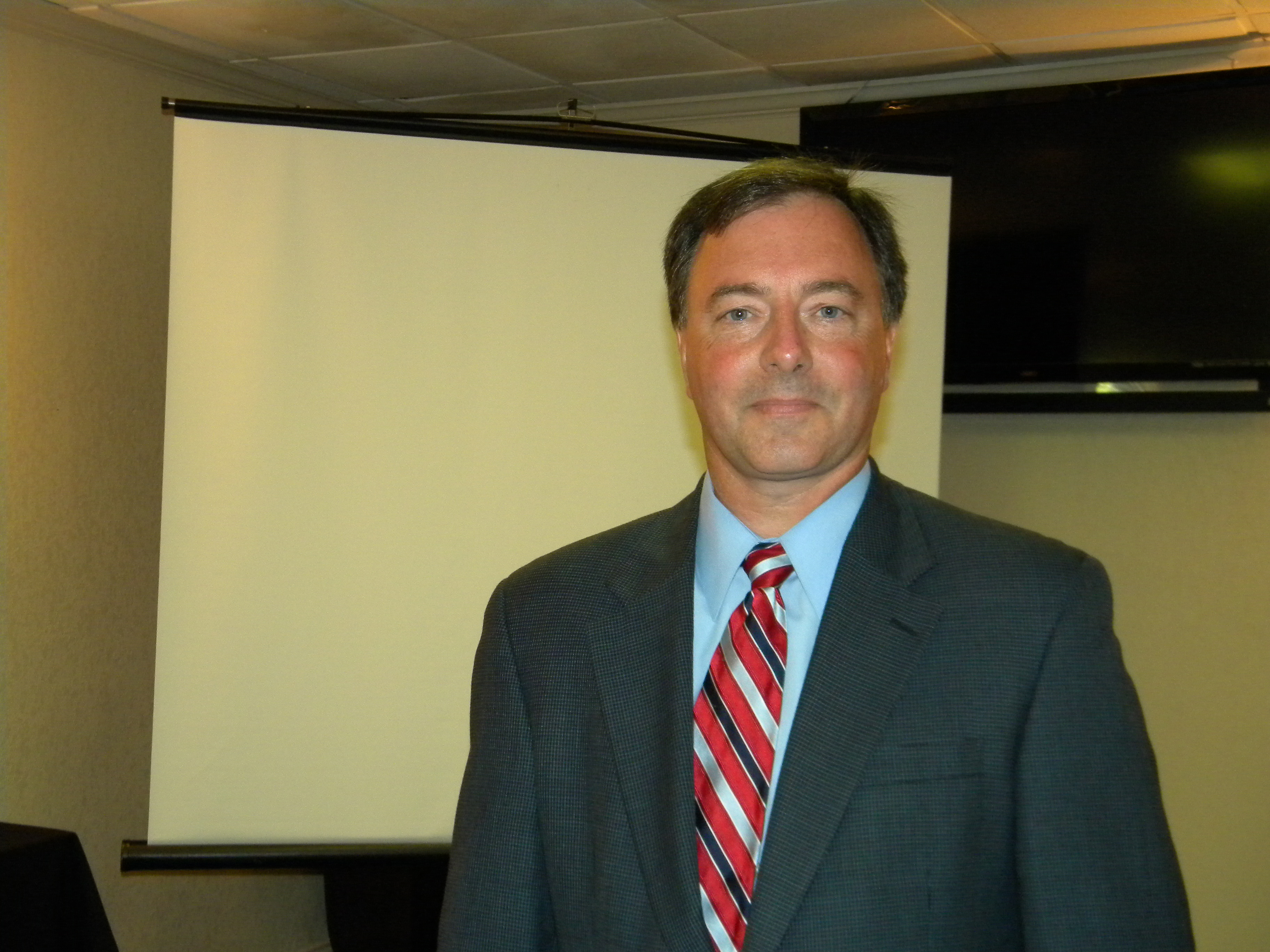NASHVILLE - A top Tennessee lawmaker says it's up in the air as to what action a legislative panel will take today on Gov. Bill Haslam's proposed rule to require out-of-state retailers with no physical presence here to collect state and local sales taxes on internet purchases.
"What happens [today] is anybody's guess right now, whether they came forward with approval or disapproval," Senate Government Operations Committee Chairman Mike Bell, R-Riceville, said Tuesday, noting he feels conflicted himself over the issue with small mom-and-pop stores at home urging him to back the rule.
Meanwhile, another key lawmaker, House Government Operations Committee Chairman Jeremy Faison, R-Cosby, who had previously stated he was inclined to oppose the rule, said, "They are bringing a valid argument for the state to be able to enforce businesses out of this state to collect sales tax.
"It has definitely hurt our local mom-and-pop businesses - and it is not a new tax," Faison said. "This is a tax that's already on the books."
The Department of Revenue's proposed rule, which would apply to out-of-state internet retailers and catalog sellers with sales exceeding $500,000 annually, is scheduled to come up for a hearing before the Joint Government Operations Committee, which is made up of House and Senate panel members.
Haslam has said the move is intended to join with other states in passing such rules or legislation, which they know will be challenged in courts. It's all part of an effort by states to force the U.S. Supreme Court to revisit its 1992 Quill Corp. v. North Dakota.
Citing the U.S. Constitution's Commerce Clause, justices held almost a quarter-century ago that businesses must have a physical presence in a state before they can be compelled to collect state and local sales taxes. Justices said Congress needs to address the problem.
But since then, Congress has done virtually nothing. Meanwhile, internet-based commerce has exploded.
Critics charge that's forced a number of traditional brick-and-mortar operations, which employ local workers and pay local property and other taxes, to close because of a government-imposed disadvantage that makes them collect sales taxes while their out-of-state competitors don't.
Haslam says out-of-state internet commerce companies and catalog sellers with no physical presence here enjoy a nearly 10 percent advantage over their Tennessee-based competitors. That's because in-state retailers must collect the state's 7 percent sales tax and up to another 2.75 percent in local sales taxes.
Haslam's administration estimates the state is losing out on an estimated $450 million in sales tax revenue. Tennessee sales taxes comprise more than 50 cents of each tax dollar, and the revenues are becoming more important with the GOP-controlled General Assembly voting to phase out the inheritance tax nearly six years ago.
This year, legislators doubled down by voting to phase out the state's Hall income tax on dividends and interest over a six-year period.
States such as Tennessee began pushing legislation or rules on internet and other remote sellers after Supreme Court Justice Anthony Kennedy basically invited them to do so in a related 2015 case. Kennedy cited congressional inaction as the reason.
Under Tennessee procedures on proposed state rules, a decision by the Joint Government Operations Committee to reject the rule would put the decision to the full House and Senate during the 2017 legislative session.
If the joint committee chooses not to act, the rule is considered approved. However, a bill could still be filed and considered by the full House and Senate to reject the rule during next year's legislative session.
"The economy is shifting so much that way [to the internet]," Haslam said. "It's literally not a fair playing field for our in-state retailers. And those are folks who are not only having to collect the tax, but they're paying property tax. They're sponsoring the local Little League team, and these are folks who are contributing in a full way to our economy."
U.S. Sen. Lamar Alexander, R-Tenn., a former governor, has joined in congressional efforts to give states the authority to require remote sellers to collect the tax which by law is already owed by consumers. The measure passed the Senate but has stalled in the House.
Meanwhile, Bell said, "The vast majority of the committee members, like myself, are conflicted on this rule. First, I think it's Congress' duty to settle this issue." He said he's hearing plenty from local retailers "whose businesses are being hurt from competition from internet sales."
That includes businesses in Cleveland and Bradley County, Bell said. He noted one constituent told him he can't match the price of out-of-state competitors who can offer the same item for nearly 10 percent less because they're not compelled to collect the taxes that he must collect from customers.
"I wish the state was not having to look at it," Bell said, later adding, "but again, they [Congress] have continued to drag their feet."
Internet retailers and Tennessee-based brick-and-mortar retailers are clashing as they each seek to sway Tennessee lawmakers.
Tennessee Retailers Association members this week fired off a letter to both Government Operation committees with some 50 small retailers ranging from jewelry stores to a car dealer urging them to approve Haslam's proposed rule, saying it is "clearly unfair" to compete against internet retail giants that enjoy a government-imposed advantage.
"These [local] businesses are the backbones of our communities; they're creating jobs, supporting families and the local workforce, and contributing to hometown causes," said Roland Myers, president and CEO of the Tennessee Retail Association. "They deserve the chance to compete on a level playing field."
Meanwhile, Carl Szabo, policy counsel for the internet trade and lobby association NetChoice, whose members include eBay and Overstock.com, charged this week that "Tennessee tax collectors are poised to extend their taxing powers, leaving the state vulnerable to legal challenges and exposing Tennessee-based businesses to retaliation from other states. Ignoring federal doctrine by requiring out-of-state businesses to collect sales tax is a killer for small businesses and a losing cause in the courts."
But Haslam and proponents are betting the Supreme Court will reconsider the 1992 Quill case.
In a NetChoice poll conducted by Morar Consulting, only 21 percent of 400 Tennesseans were inclined to support the proposed sales tax regulation. Fifty-six percent said they considered the new rule "a statewide tax increase, and 46 percent think it will adversely affect Tennessee businesses."
Contact staff writer Andy Sher at asher@timesfreepress.com or 615-255-0550. Follow on Twitter @AndySher1.

